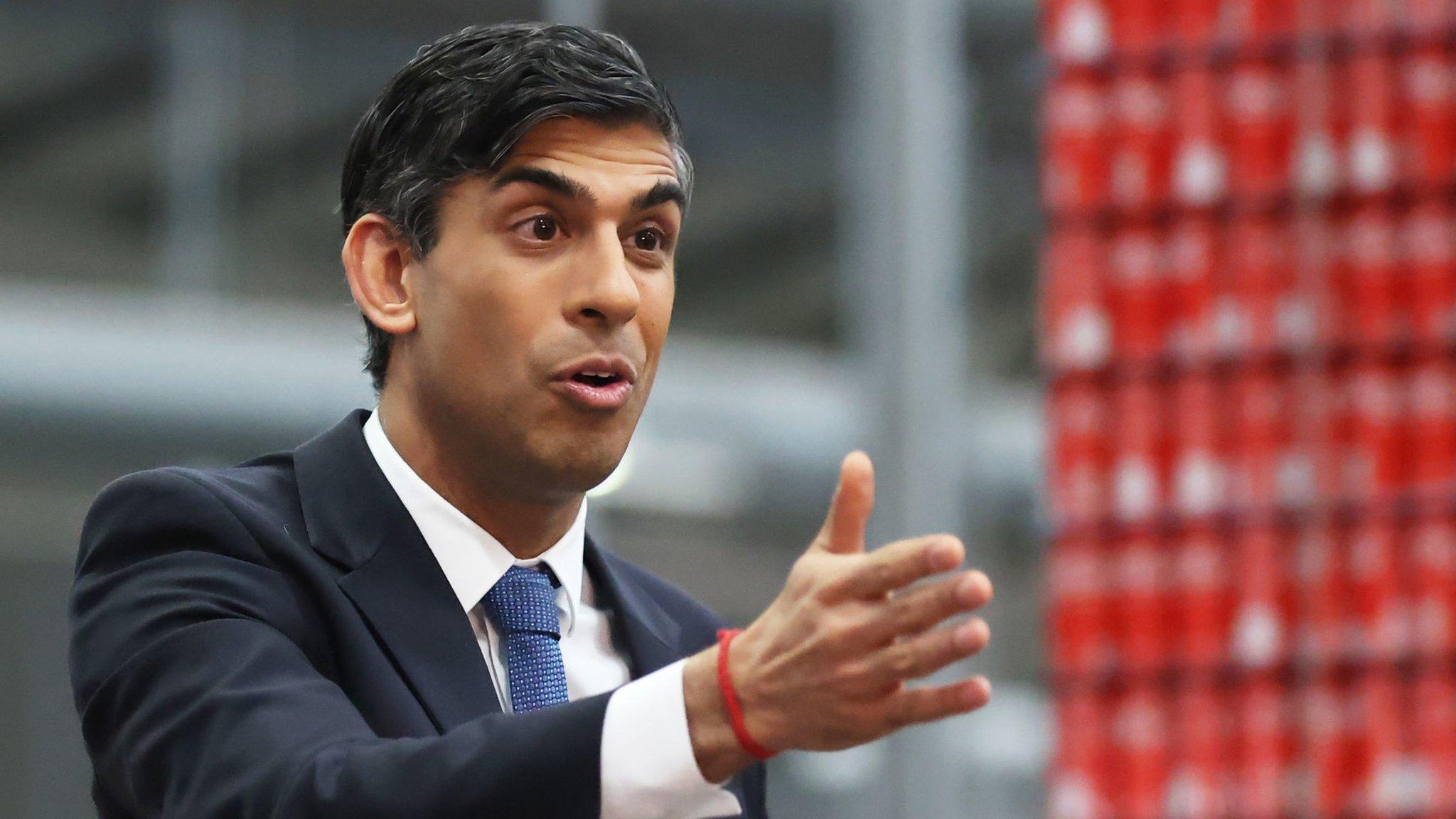DUP leadership 'risks splitting party' over Windsor Framework
- Published
- comments
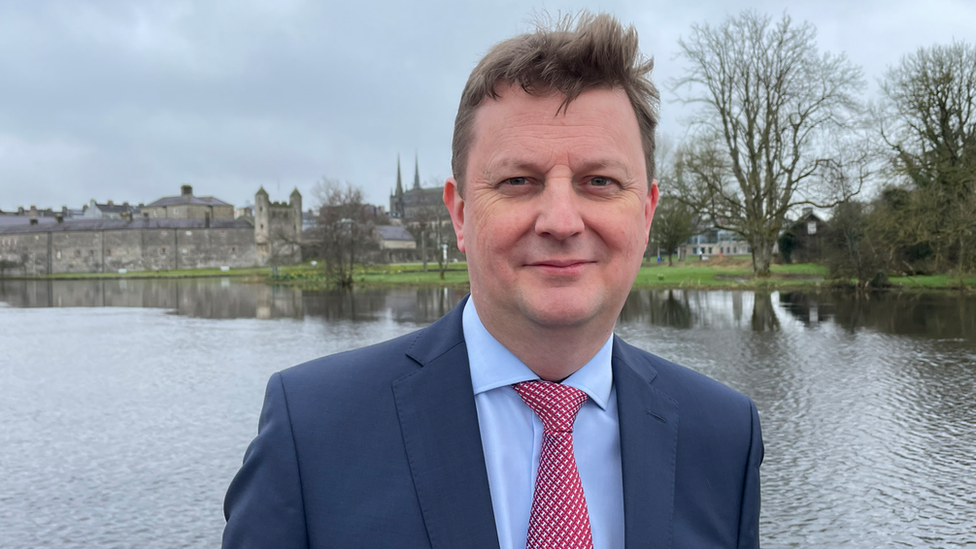
Former Ulster Unionist adviser David Kerr now runs a planning and communications company
The DUP leadership risks splitting the party if it continues to prevent the formation of a government in NI, according to the former UUP adviser of the late First Minister David Trimble.
David Kerr says he believes there are DUP assembly members anxious to return to power-sharing.
But he thinks they are facing opposition from senior figures within the party, including MPs.
Mr Kerr now runs a planning and communications company.
The Democratic Unionist Party (DUP) is currently involved in a boycott of the Stormont Assembly because of objections to post-Brexit trade rules agreed between the EU and UK.
Mr Kerr also told BBC News NI that he sees parallels between the divisions that emerged within the Ulster Unionist Party (UUP) after the signing of the Good Friday Agreement and what is currently happening within the DUP.
"I think the DUP Westminster team are clearly quite comfortable keeping Stormont down," he added.
"That was the very same position David Trimble faced in many respects 25 years ago.
Unionism in Northern Ireland: 'We're being pushed to one side'
"What you find is that people on the ground in Stormont and MLAs have a different view, I suspect.
"They obviously feel that there is a need to make Stormont work to prove to the vast majority of people here that Northern Ireland works."
The current leader of the DUP, Sir Jeffrey Donaldson, and his predecessor Baroness Arlene Foster, both left the UUP in the years following the 1998 deal because of disagreements with the direction of the party.
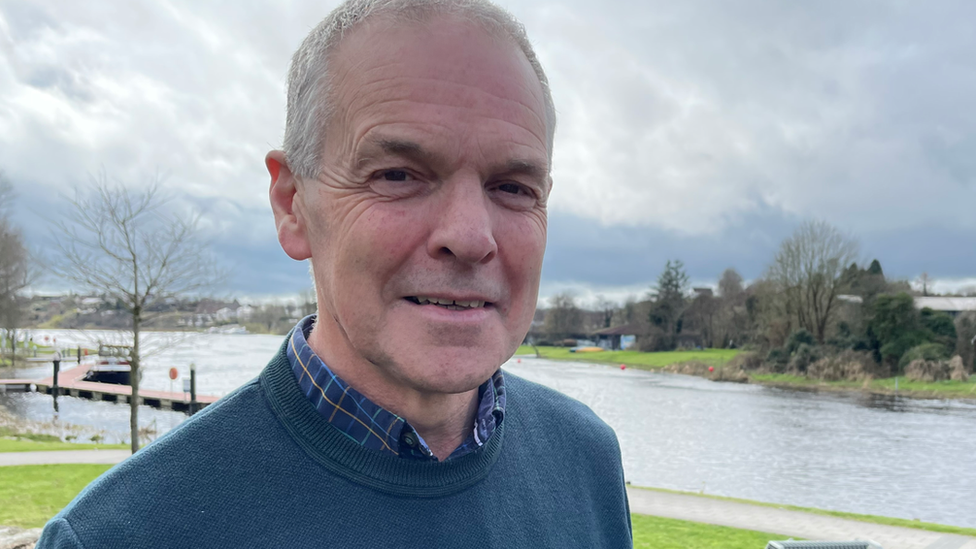
Stuart Brooker, who is a County Fermanagh Orangeman, says he believes the deal "erodes his Britishness"
The DUP has been critical of many parts of the Windsor Framework but set up an advisory panel to consider the deal between the EU and UK. Its report has now been passed to the party leadership for consideration.
The framework was designed to address concerns about trading arrangements. However, many unionists object to the need for Northern Ireland to still follow some EU rules and regulations.
'Great concern'
Stuart Brooker, who is a County Fermanagh Orangeman, says he believes the deal "erodes [his] Britishness".
"We can go right back to the 1985 Anglo-Irish Agreement and from all those years ago we can see things being chipped away, a little bit at a time, a little bit at a time," he said.
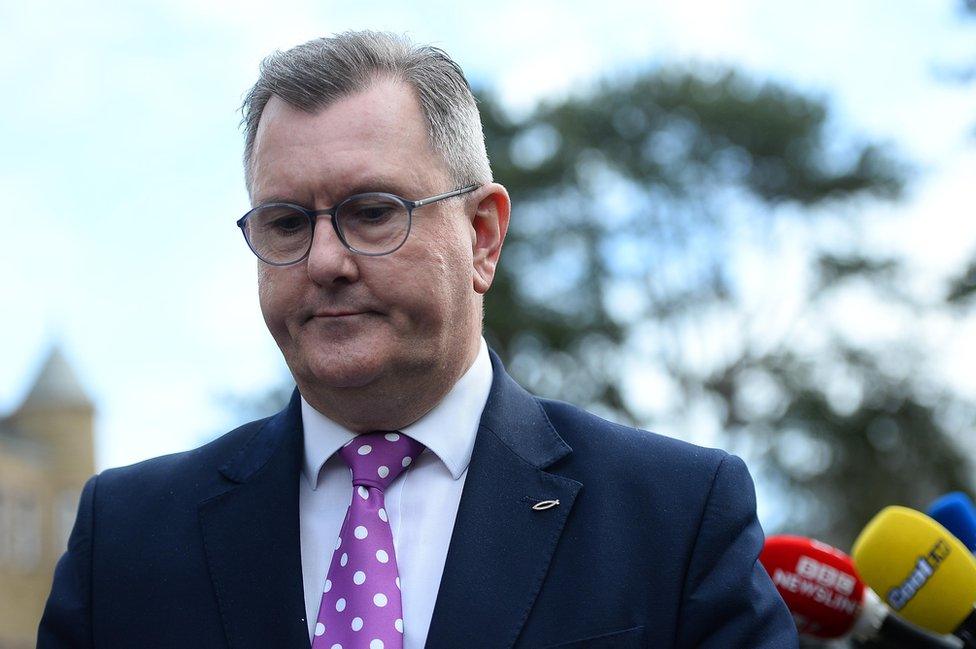
Sir Jeffrey Donaldson said his party would consider the findings of a panel which examined the deal
"It's a great concern for me personally… and it's a great concern for unionists generally."
However, many business groups support the Windsor Framework and argue that the new agreement will reduce checks for goods coming from Great Britain and staying within Northern Ireland.
Davy Wilson, who runs logistics company Freight Partnership, describes himself as a "liberal unionist".
He believes any problems with the deal can be addressed and that more harm is being done to Northern Ireland's economy by a lack of government.
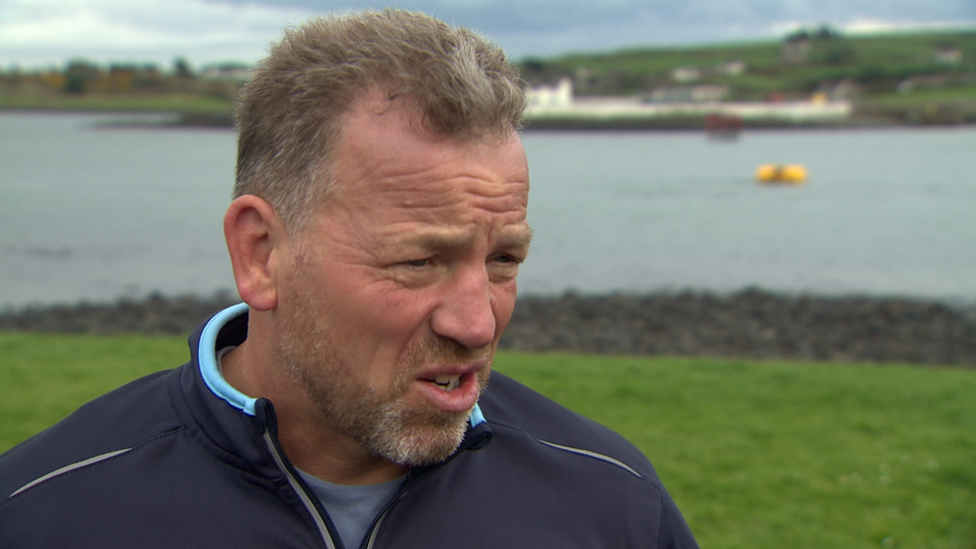
Davy Wilson, who runs logistics company Freight Partnership, describes himself as a "liberal unionist"
"If our MLAs would get back into Stormont, get their heads together and get working again that would be a starting point," he told BBC Newsline.
'Prosperity'
"But while they are stuck on the outside we're getting nothing done.
"We want to see prosperity in Northern Ireland.
"That's what will keep this place settled and we'll be able to move on."
The DUP panel which has been gathering views on the Windsor Framework had originally been expected to report back to the party's leadership by the end of March.
After receiving its report on Friday, Sir Jeffrey said he would "now take time to discuss [it] with my party officer team".
"I will be very interested to see if [the panel] have a view on whether they go into Stormont or whether they stay out of it," Mr Kerr said.
"It might not happen before the council elections in May.
"But when you get to September, October or November if Stormont is not back there are going to be a lot of people in that assembly group saying, where do we go from here?"
This article is the first in a series this week which will examine the future direction of unionism and politics in Northern Ireland. You can also see the reports on BBC Newsline at 18:30 BST.
- Published31 March 2023
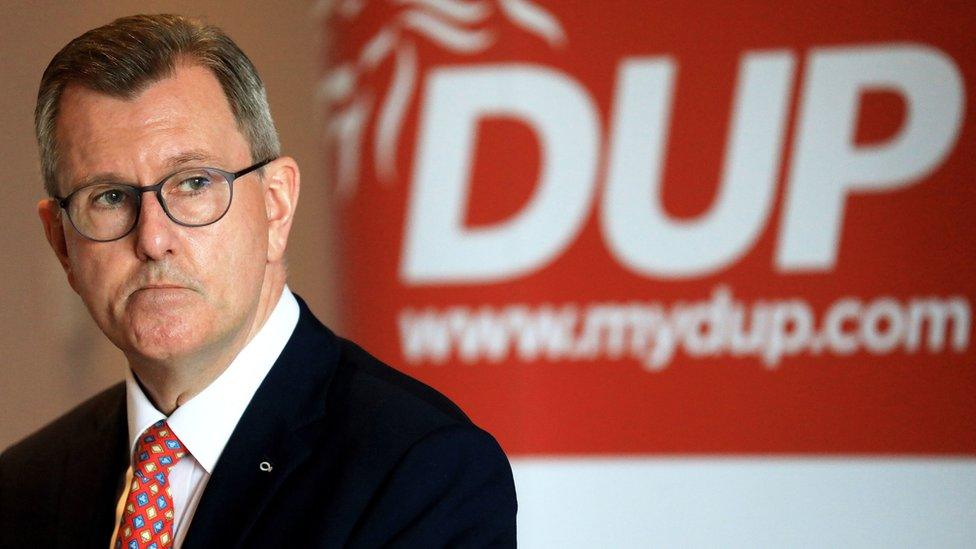
- Published20 March 2023
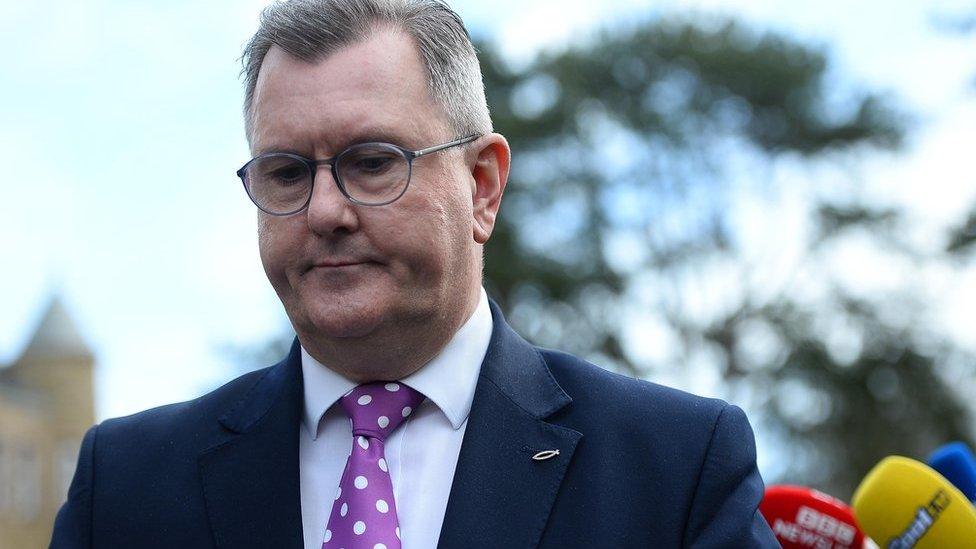
- Published6 March 2023

- Published14 March 2023
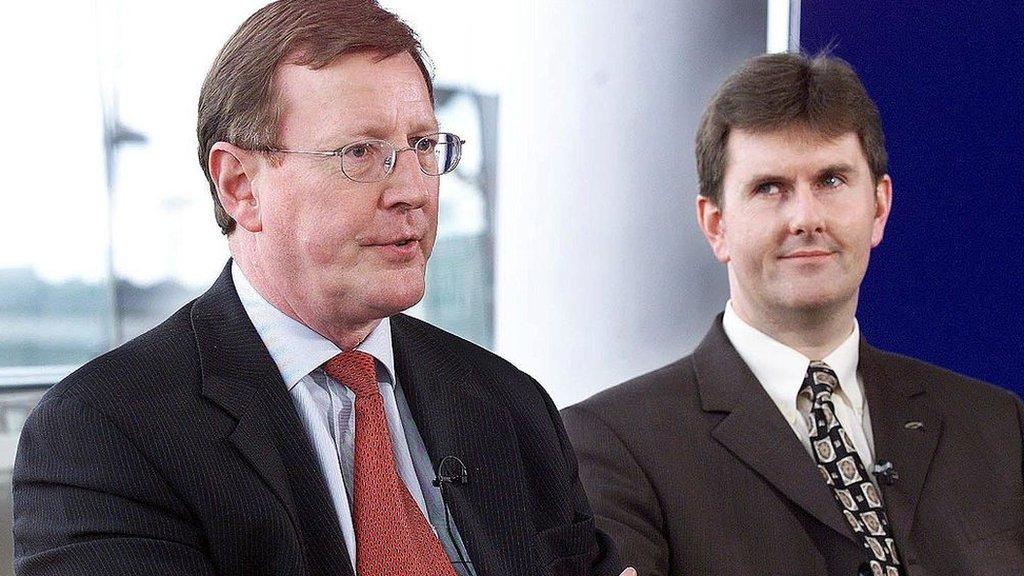
- Published11 March 2023
